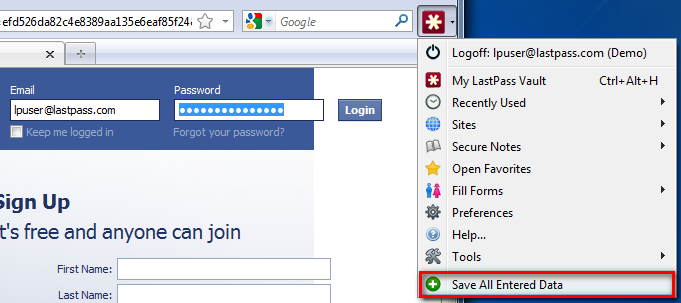One of the endemic annoyances of using web services and apps is the accumulation of login and password credentials. If you’re cautious about security, you undoubtedly have several different passwords, meaning if you’re registered on many sites, remembering all of them can get rather messy. LastPass is a browser extension that makes this job much easier by remembering all your passwords for you and securely storing all your personal details.
You install LastPass through its browser extension, which is available for all the leading browsers. Its main function is to memorize and remind you of passwords, bank account details, and other private details in a straightforward way. If, for example, you type in your username and password to access Facebook, you will automatically be asked if you want LastPass to remember these details so that you don’t have to enter them the next time you log on. In this way, all of your passwords will be unified under a single one that will serve as your “master key.”
This key will be the one you type in when you access LastPass for the first time, and then you can associate all the info you want with your LastPass user profile, as well as all passwords and login credentials that you validate for the application. There’s a reason you need to be careful to memorize this highly important master key when you’re configuring this service: it will be the only one you’ll need to log in to any site.
Although the idea is that LastPass functions in the background and integrates seamlessly with your browsing, if you go into its settings panel you can modify any of the info related to your credentials, create several different user profiles, or even manually add your login details for a particular website without having to go there and wait for the browser to ask you if you want to save them with LastPass.
https://www.youtube.com/watch?v=9rZkAZWjvmI










[…] there are ways to encrypt your access to all sorts of online services by using programs such as LastPass. If on top of these these precautions you follow a series of tips on how to avoid your details from […]